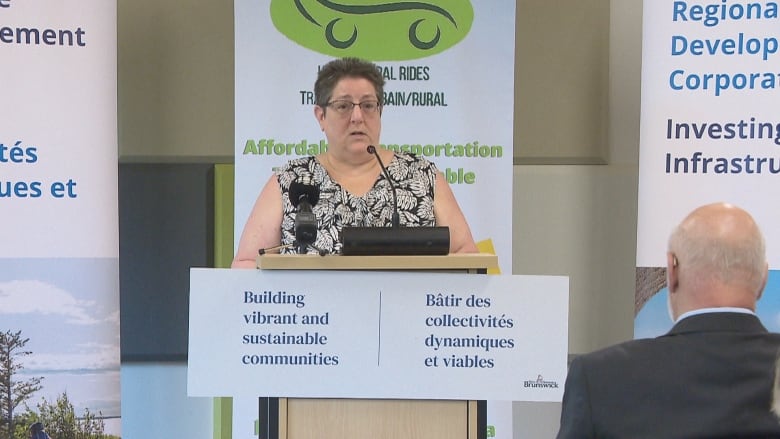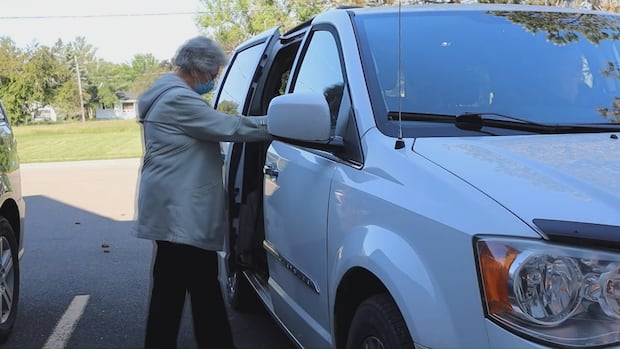N.B. commits $2M to launch AI-powered volunteer ride platform

New Brunswick volunteer ride programs will soon be able to more efficiently take bookings and dispatch drives with the help of an artificial intelligence platform.
Urban/Rural Rides, a charity which provides transportation to seniors, low-income families and people with moderate disabilities, will roll out the software province-wide by the end of the year.
Executive director Kelly Taylor said the technology will make the process of booking rides and assigning volunteer drivers “way more efficient.”
“If somebody’s coming into Moncton from another region and staying overnight, then a Moncton driver can help take that person home,” she said.
On Monday, the New Brunswick government announced a commitment of $2 million over four years. Urban/Rural Rides will be working on the project with Blaise Transit, a Montreal-based company that offers software for transit networks.
The software is designed to help the regional service commissions manage the volunteer ride services, with everything from dispatching to monitoring operations in real time.
There’s also an app for drivers that guides the volunteers along their routes. It offers turn-by-turn directions, tells them who to pick up and what the passengers’ mobility needs are.
Urban/Rural Rides, a charity which provides transportation to seniors, low-income families and people with moderate disabilities, will release a provincial dispatch platform by the end of the year.
For clients, they will now have several options for booking rides. They can make a request through the Blaise Transit app or on a website. For people without access to devices, they can still call and speak with a dispatcher, who will put the request into the software for them.
Blaise Transit CEO Justin Hunt said the platform will give riders more flexibility to manage their commutes themselves.
“Right now in a lot of these communities people have to call in quite far in advance because there’s humans planning this manually on the other end, and so there needs to be a lot of lead time,” he said.
Hunt said the “tedious” work volunteers currently do to co-ordinate rides will be handled by artificial intelligence, giving them time to dedicate elsewhere.
“They can reinvest that time into adding more services and improving the accessibility at a greater scale,” he said.
New Brunswick will become one of the first areas in Canada to roll out artificial intelligence-powered software for volunteer ride programs on a province-wide scale, according to Hunt.

Blaise Transit previously launched the technology in 24 municipalities in Nova Scotia and 40 other municipalities across Canada and the United States.
Regional Development Corporation Minister Réjean Savoie said it is important to increase access to transit, particularly in rural areas.
“People without a car, older people, people that need to go for medical reasons, or just for shopping. This will help have accessibility to transit for everybody in the province,” he said.
Urban/Rural Rides has been working on the project over the past year.
Taylor said the program will help the province’s existing regional volunteer ride programs to work together and share resources.
“Some of our volunteer groups in other regions have one employee, and that employee can never take vacation because nobody can help them,” she said. “So having everybody on the same platform will allow that opportunity for vacation covers or supporting each other.”
The platform is expected to be rolled out gradually to all 12 of the province’s regional service commissions by the end of the year. Some areas could see the software in use as early as July.




